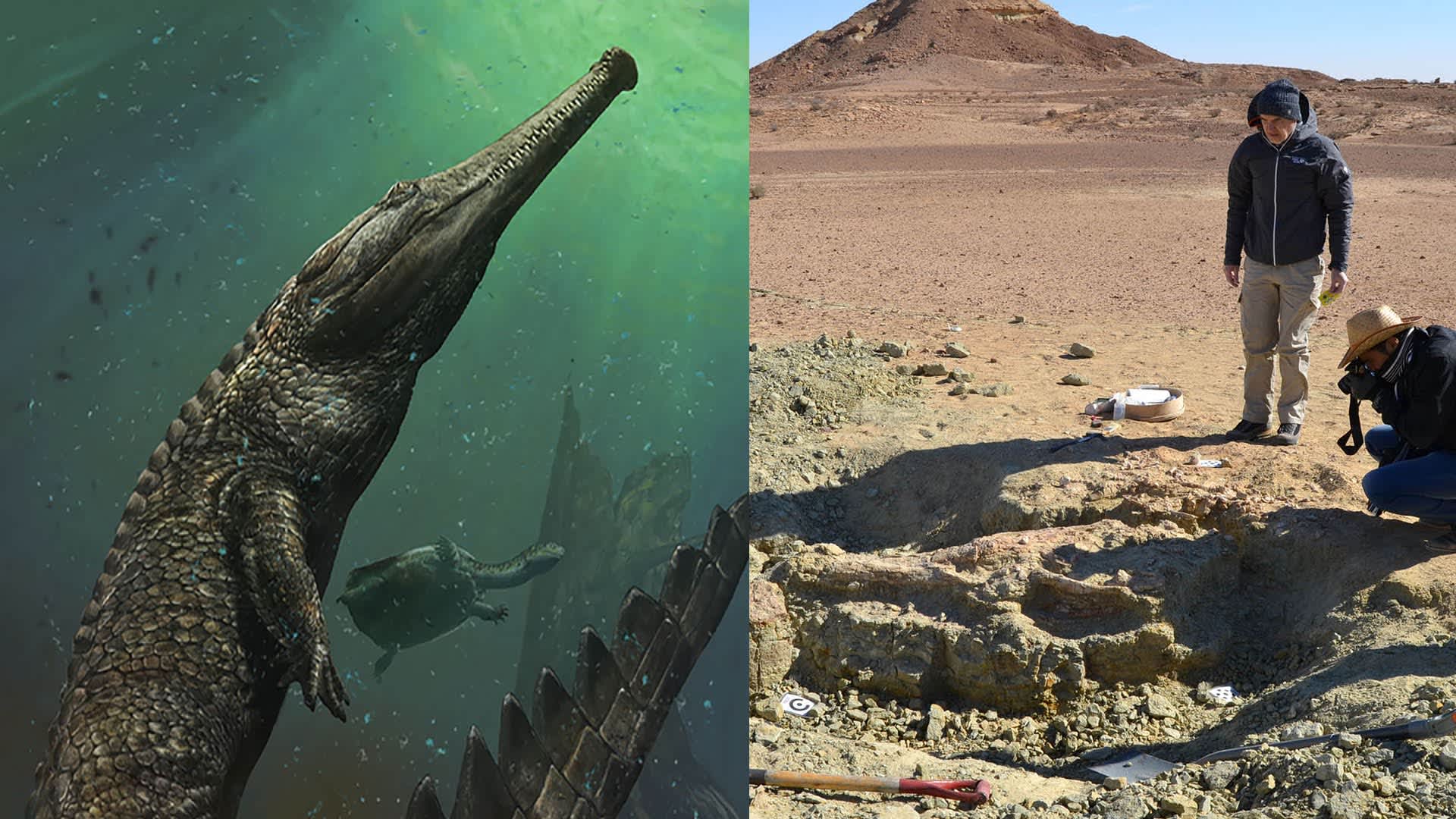Scientists Discover Extinct 30-foot “Mega Crocodile” on Edge of Sahara
OutdoorHub Reporters 01.12.16

A group of paleontologists say they recently unearthed the bones of the largest ocean-dwelling crocodile believed to have ever existed, and that the discovery was made on the edge of the largest hot desert in the world: the Sahara.
A team led by Federico Fanti of the University of Bologna discovered the fossilized bones of the Machimosaurus rex, an ancient crocodile that weighed over 6,000 pounds and grew up to 32 feet long, in Tunisia. Experts said the massive reptile was an apex predator that lived more than 130 million years ago when a large ocean separated what is now Africa from Europe.
“This is an incredibly big crocodile. It is twice as big as a present day marine crocodile,” Fanti told Fox News. “The skull itself is as big I am.”
Although the Machimosaurus rex is massive compared to modern crocodiles, it is still much smaller than the largest crocodile that ever lived, the freshwater Sarcosuchus imperator. That gigantic reptile weighed as much as 17,000 pounds and grew up to 40 feet long. Not surprisingly, the first fossils of the Sarcosuchus were also found in the Sahara.
In a study published in the journal Cretaceous Research, researchers speculated that the Machimosaurus rex was likely an ambush predator that ate primarily fish and large marine turtles.
“Machimosaurus rex had stocky, relatively short and rounded teeth, and a massive skull capable of a remarkable bite force,” Fanti told the National Geographic.
You can hear Fanti describe the ancient predator below:
Experts say the discovery is also significant since it showed that the Machimosaurus rex lived beyond the mass extinction event at the end of the Jurassic period, about 150 million years ago. That is when scientists believe that most of the teleosaurid crocodiles died, making the Machimosaurus rex the last of its kind to survive. According to Fanti, the fact that the crocodile survived the extinction event may mean that it was not as widespread as once believed.
“In our interpretation, the end-Jurassic event was global in its effects but was mostly likely a complex sequence of local biological crises that are still poorly documented,” Fanti said.
Today, the saltwater crocodile, a species only distantly related to the Machimosaurus, remains the largest of all living reptiles and by weight is considered the largest terrestrial predator in the world.

